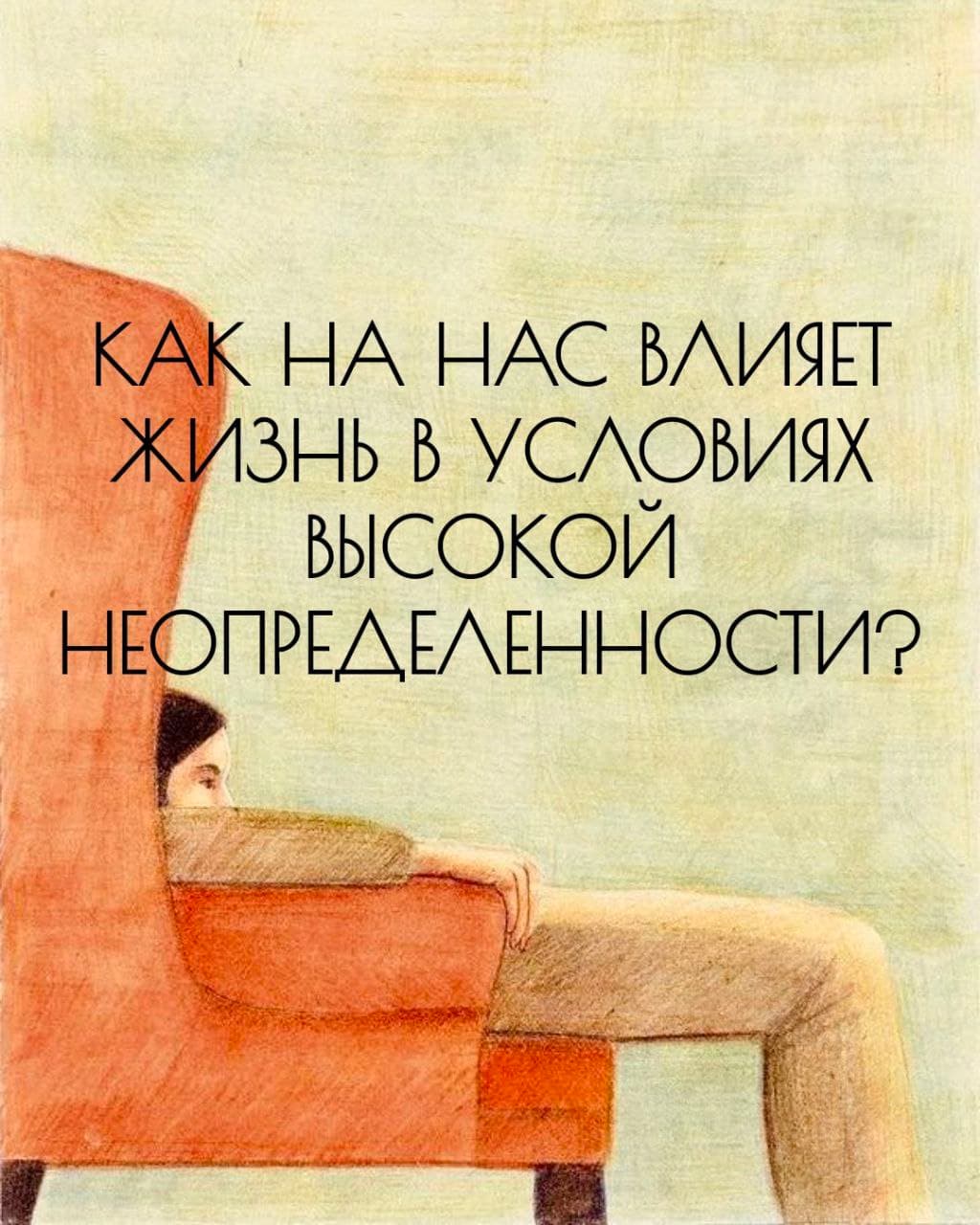
@omprograms
Uncertainty is almost inevitable and, in a way, even a familiar part of our lives. But when the level of uncertainty is high, it can affect a whole range of important aspects of our lives.
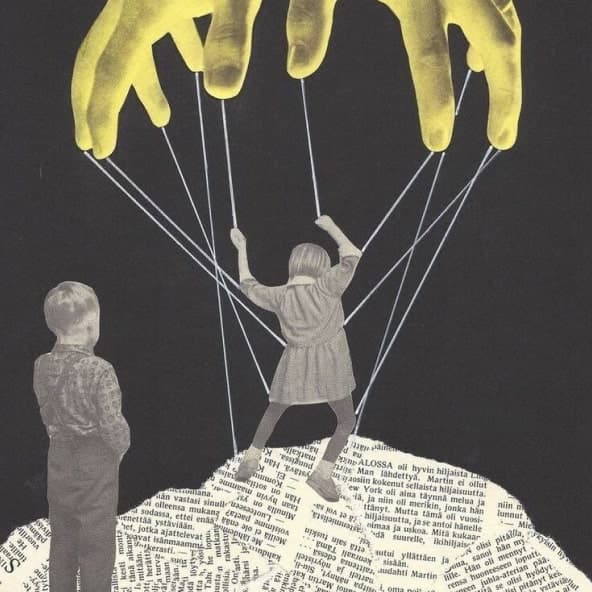
All week long, social networks have been discussing the movie "Traitors" by Alexei Navalny's associates, which is dedicated to the 1990s and the preconditions for Vladimir Putin's rise to power. By the end of the week, the movie had garnered almost 3.5 million views. In essence, it was a development of the ideas of Navalny's last program publication. Its main idea was that Putin's era is a direct continuation of the "cursed 90s" and it is the "reformers" led by Boris Yeltsin who are responsible for the loss of Russia's historical chance. In her column for The Bell, psychotherapist Olga Movchan looks at the same problem, but from a completely different perspective - she analyzes how and why our society itself behaves in a complex historical context.
From 2016 to 2019, I interviewed a hundred people from different professions living in Moscow. These were very different people and the interviews turned out to be very different. However, they had several common features, one of which was the feeling that it is impossible to influence life inside the country and change anything in this life. My little research is confirmed by the data of the Levada Center, which in 2016 published the results of its poll - "73% of citizens are sure that they cannot influence the situation in the state".
This phenomenon - the confidence in one's powerlessness - was described by American psychologists Martin Seligman and Stephen Mayer in 1967 and called "Learned Helplessness". Seligman described learned helplessness (LH) based on the results of experiments on dogs. He believed that an animal is born active and learns to be powerless when repeatedly confronted with insurmountable situations in which attempts to change things are futile or punishable. Later on, many studies were conducted, which not only showed that a human being, who finds himself in a situation where he cannot influence reality, transfers this negative experience to life in general, but also significantly "expanded" the ideas about the manifestations of UB.
HB affects several spheres of human life at once - behavioral, cognitive and emotional. The symptoms of IB are not only passivity and refusal to try to solve problems or influence society, but also depression, decreased motivation in general and difficulties in taking responsibility. A person with UB is also characterized by decreased creativity, difficulty in bringing the started tasks to the end, inability to adequately assess their strength and take reasonable risks, presence of fears of the future and catastrophic expectations, lack of self-confidence and hope for someone strong who will organize life. The consequence of VB is greater vulnerability in stressful situations, refusal of efforts to obtain information and reduced analytical abilities.
In 2000, Mayer suggested that Seligman was mistaken in interpreting the results of the experiments. In Mayer's opinion, a living being is born helpless (this is something that does not need to be learned), while the skills of overcoming difficulties and the ability to influence reality are acquired in the process of development and upbringing. It is the environment that determines whether a person will be able to control reality and change life or will give up such attempts. In this sense, Mayer's WB is a lack of acquired skill not to lose hope.
Regardless of whether Meyer or Selegman is right, traumatic events associated with the experience of powerlessness can actualize HB. But if a person was raised in an environment where he or she was able to learn to influence reality and take responsibility, this is less likely to happen.
Unfortunately, the society in which my generation and several generations of my ancestors grew up - Soviet society - and modern Russian society in macro-sociological terms is like a deliberately made model for WB education.
The main factors leading to the occurrence of UB can be conditionally divided into three groups, each of which I (as well as most of my peers) met more than once in my childhood.
The picture described above was in the USSR and, as it seems, with a short break in the 90s, has again become very typical in Russia for a wide variety of social institutions and age groups. I remember in kindergarten, where I went from the age of three, the teacher, if the child ate slowly, would mix soup with the "second" and you had to eat this junk so as "not to delay the collective". All this was accompanied by emotional deprivation. If a child cried, he was shamed. In our group, two people cried most often - me and one boy. The teacher would bring us a bucket in which to rinse a floor cloth so that we would "cry more". Such empathy.
It is precisely because of deprivation and lack of attention to personal needs that UB syndrome often occurs in orphans and their children, to whom behavioral and parenting styles are passed on. Because there is no adult who is attentive and willing to listen to the child's needs, negative events are experienced as uncontrollable. Orphans have a disturbed belief that their efforts are worthwhile and can make a difference or solve a problem. The experiences of others (as well as their own) are no longer felt as something important, so both their own sensitivity and empathy are reduced. However, there remains a crazy dream of some mythical adult, strong and big, who will take responsibility and help to organize life. It is on such an archtypical adult that the capacity for action is projected. He can do what the orphans cannot. And then joining the "strong adult" is almost the only way to exist in society.
Going back to my generation, I realize with sadness that many of us were raised as orphans - post-war orphans and children of enemies of the people or social orphans (when, with living parents, children are left to fend for themselves and do not find the necessary supports). This is my experience as well. My mother lost her father when she was three years old, he was repressed and died in a camp. My father lost his mother and was orphaned at the end of the war, he was raised by an aunt. The traits of this orphan life still greatly influence Russians both inside and outside of Russia. Hence the talk of a "strong hand" and the piety for the authorities, the hope for a "father of nations" or "tsar" and the dream of a superpower.
It must be said that it seems that contemporary Russian propaganda has become more sophisticated than in Soviet times. While successfully broadcasting WB-inducing narratives, it simultaneously imposes the illusion of autonomy and choice on its citizens. Today, Russians are forbidden to go out on the street with a "I am for peace" placard, but are allowed to choose a president from among four "very different" candidates in the presidential race. Not like in Soviet times, when there was only one candidate. This illusion of choice contributes to the WB to an even greater extent than its absence, because it creates an imitation of responsible behavior, which in fact is completely under control and does not affect anything.
In addition, if information used to be scarce (when people could listen to the Voice of America or the German Wave from Cologne, they felt they had a rare treasure - independent information), now in the era of "post-truth" we have an incredible amount of completely contradictory information. It is very difficult to make sense of it and come to any definite opinion. So many people prefer to find someone to believe (sometimes not very consciously choosing someone who matches the recipient's preferences - or who is convenient or profitable to believe. Again, someone more "intelligent" or more mature.
The capitalist model with private property, free market and competition, while seeming less attractive from an ethical point of view, is certainly healthier in terms of WB - as long as under the slogan of "social protection" it does not start taking away a large part of the created added value in the form of taxes, proclaiming the primacy of public areas and transportation, etc.
Learned helplessness is accompanied by a range of psychological defenses that undoubtedly affect social interactions. Many of them are very recognizable.
The most common defense reactions are:
Regression: using more primitive forms of behavior and thinking, as well as more childish ways of coping, transferring responsibility for one's actions to other people or external factors. "We were forced", "we were provoked". Counting on another strong and responsible person, to whom control and decision-making is transferred.Denial: failure to recognize painful reality and related difficult experiences, objective facts, one's role in events. "Russia shoots only at military targets".
Compensation: intolerable experiences or obvious shortcomings are replaced by an imaginary feeling or property that evokes positive feelings. "I know of no other country where man breathes so freely," Lebedev-Kumach wrote in 1936, at the height of Stalin's repression. Instead of feeling shame for the repression of one's own citizens or aggressive actions against other countries, one begins to feel pride and declare the country rising from its knees.
Projection: what one does not want to accept in oneself or associate with one's society is projected outward. One's own aggression is not realized, the world is perceived as hostile and dangerous, conspiratorial theories from "the Rockefeller-Rothschild conspiracy" to "the Anglo-Saxons' desire to take over Russia" are discussed.
Displacement (deflexion): expressing an experience to someone other than the person to whom it is addressed. We are angry at the boss, but kick the cat. Or in our rage at Putin, we attack our former compatriots - those who have left and those who have stayed behind.
Dissociation: reality starts to be perceived as happening to someone else, not me, or breaks up into several existing parallel realities that are difficult to reconcile. Dissociation helps to survive in an unbearable situation, as if hiding in a parallel reality. It is this mechanism that has allowed many (including me) to not fully notice what has been happening in the world for the last decade.
Intellectualization: reasoning, logic and moralizing instead of experiencing help to reduce the importance of complex feelings. In a way, writing this article is a way to protect myself from feeling powerless. Conversations in Soviet kitchens and the incredible popularity of literature are iconic features of my Soviet childhood and youth. Words replaced reality and distracted from the impossibility of changing it.
Cynicism: treating one's own and others' feelings as unimportant, and the world in general as wrong, dark, unfair, where everyone is out for themselves, makes it possible to ignore others and feel more control over one's own life.
As a rule, we deal with several defense reactions at the same time. For example, the theory of "small deeds" turns out to be both compensation (it helps to compensate for heavy feelings and escape from powerlessness) and intellectualization (often accompanied by long explanations of why this is the only way out in the current situation).
It would seem that small case theory is the way to overcome WB. But it depends a lot on the context. On the one hand, small but regular achievements and recognition of their value can improve motivation to act. On the other hand, easily achieved success without real effort does not increase self-confidence, does not give a feeling of being able to control reality and, on the contrary, increases the risk of developing IBD.
There is another aspect of WB. It is more likely to arise if a person refuses to notice his or her contradictory needs - the desire to take risks and change life and stay safe, to express dissent and maintain belonging, and so on.
If only one of these contradictory needs is realized, it is hardly possible to cope with UB. In the case of lack of understanding of needs and related feelings, a person is much more influenced by the environment (field) and accepts the uncontrollability of the situation, giving up his freedom. In this case, none of the needs is fully satisfied and this leads to the accumulation of tension, dissatisfaction, and the feeling that nothing can be changed.
The ideology aimed at supporting the WB requires from its members the utmost certainty, creating as role models the images of "flat" heroes - no doubts, 100% owned, following simple rules. This forces us to ignore the presence of contradictions, which are generally inherent in a living person.
Recognizing oneself and one's desires, including contradictory desires, is the first step necessary to get out of helplessness. This is what gives a person the basis for seeking support and exercising his or her own will.

Fill out the form below, we will answer your question shortly!

Uncertainty is almost inevitable and, in a way, even a familiar part of our lives. But when the level of uncertainty is high, it can affect a whole range of important aspects of our lives.
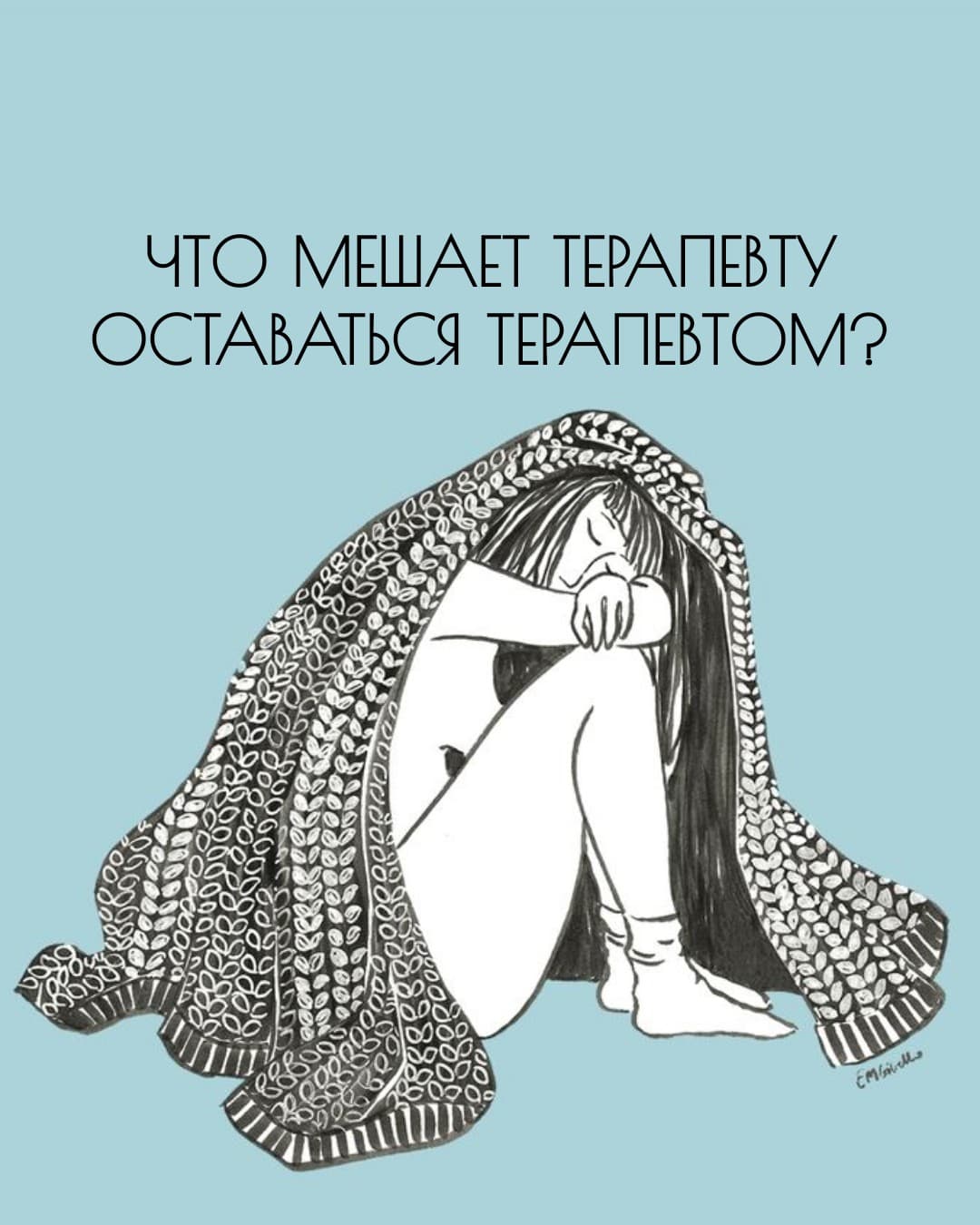
WHAT PREVENTS A THERAPIST FROM BEING A THERAPIST?
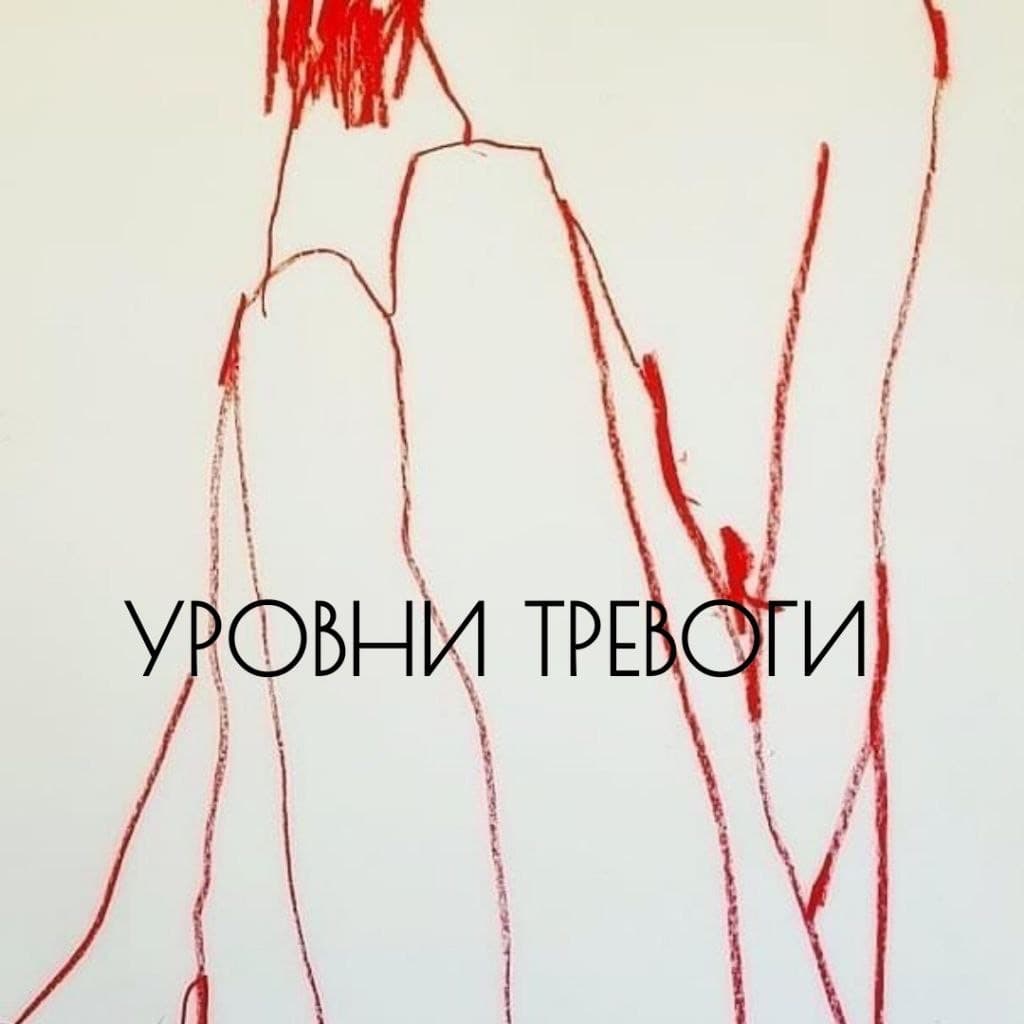
Alarm levels. What is anxiety and how to deal with anxiety?
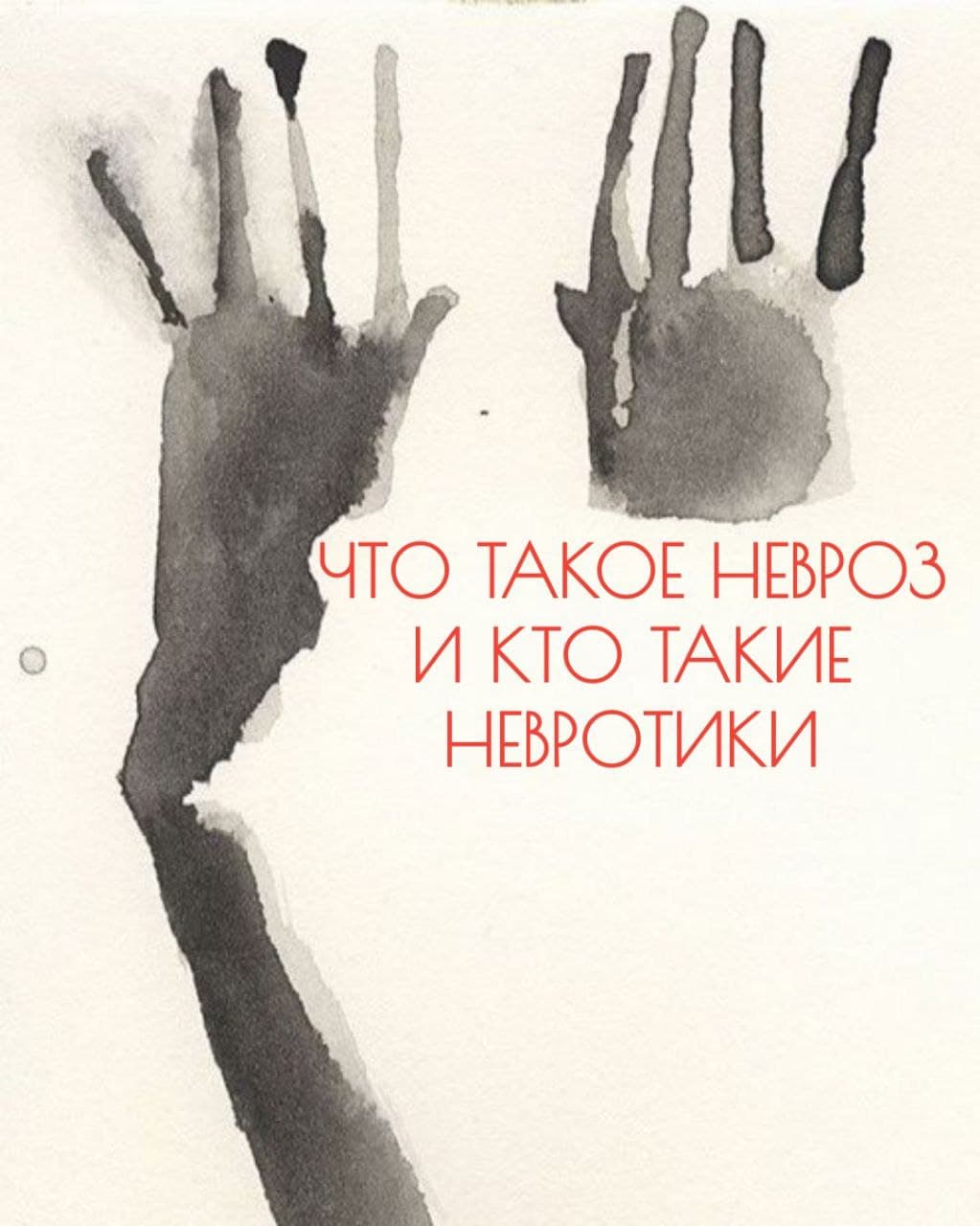
What is neurosis, and who are neurotics?